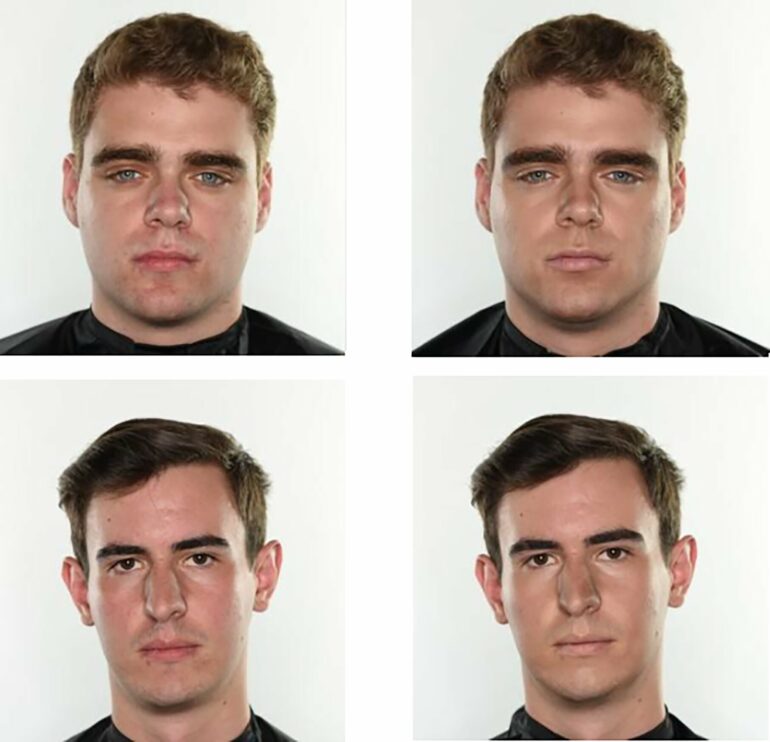Much research has been devoted to understanding the effect of makeup on perceptions. Several studies using carefully controlled before and after photographs have found that women’s faces with makeup are judged as more attractive by both male and female raters than the same faces without makeup. This effect has been found across several styles of makeup, across ethnicities, and across various ages. Moreover, this effect has been found to influence real-world outcomes, such as jury decisions.
The positive effect of makeup on attractiveness is well documented for women, but no study has investigated it in men. However, the market for male cosmetics products is growing and evolving. In terms of makeup, men are beginning to purchase certain products that have commonly only been used by women, such as concealers, powders, bronzers, and eyebrow gels.
A new scientific article published today in PLOS ONE aimed to examine whether the positive effect of makeup can be extended to male faces. In order to answer this question, the researchers photographed 20 men twice: one time without any cosmetics applied, and a second time with cosmetics applied by a professional makeup artist.
The professional makeup artist was instructed to apply subtle makeup without it being too obvious that the men were wearing makeup. She applied a range of cosmetics on the men, such as concealer and powder. Two hundred participants then rated all of the images on attractiveness.
Dr. Carlota Batres, who led the study, commented, “We found that the male faces were rated as higher in attractiveness when presented wearing subtle makeup, compared to when presented not wearing makeup. This was true for both male and female raters, and whether analyzing the data using a by-participant or a by-face analysis.”
So how does makeup make men look more attractive? Previous studies have found that skin evenness increases perceptions of attractiveness in male facial skin. Previous research has also found that lower facial contrast (i.e., less contrast between the features and the surrounding skin) makes faces appear more masculine. Additionally, bone structure in men (e.g., facial width-to-height ratio) affects perceptions of attractiveness. Therefore, it appears that subtle makeup increases attractiveness in male faces by (1) making skin appear more even, (2) increasing perceived masculinity by decreasing facial contrast (e.g., making the lips less red), and (3) influencing bone structure perceptions (e.g., chiseled jawline).
Various male celebrities are known to use subtle makeup, including Justin Bieber, Channing Tatum, Alex Rodriguez, Jon Hamm, and Zac Efron. This new study provides evidence that such makeup use does increase perceptions of attractiveness and suggests that makeup may start gaining even more popularity among men.
More information:
Carlota Batres et al, Makeup increases attractiveness in male faces, PLOS ONE (2022). DOI: 10.1371/journal.pone.0275662
Provided by
Franklin & Marshall College
Citation:
Macho makeup: New research on how cosmetics increase attractiveness in men (2022, November 3)



